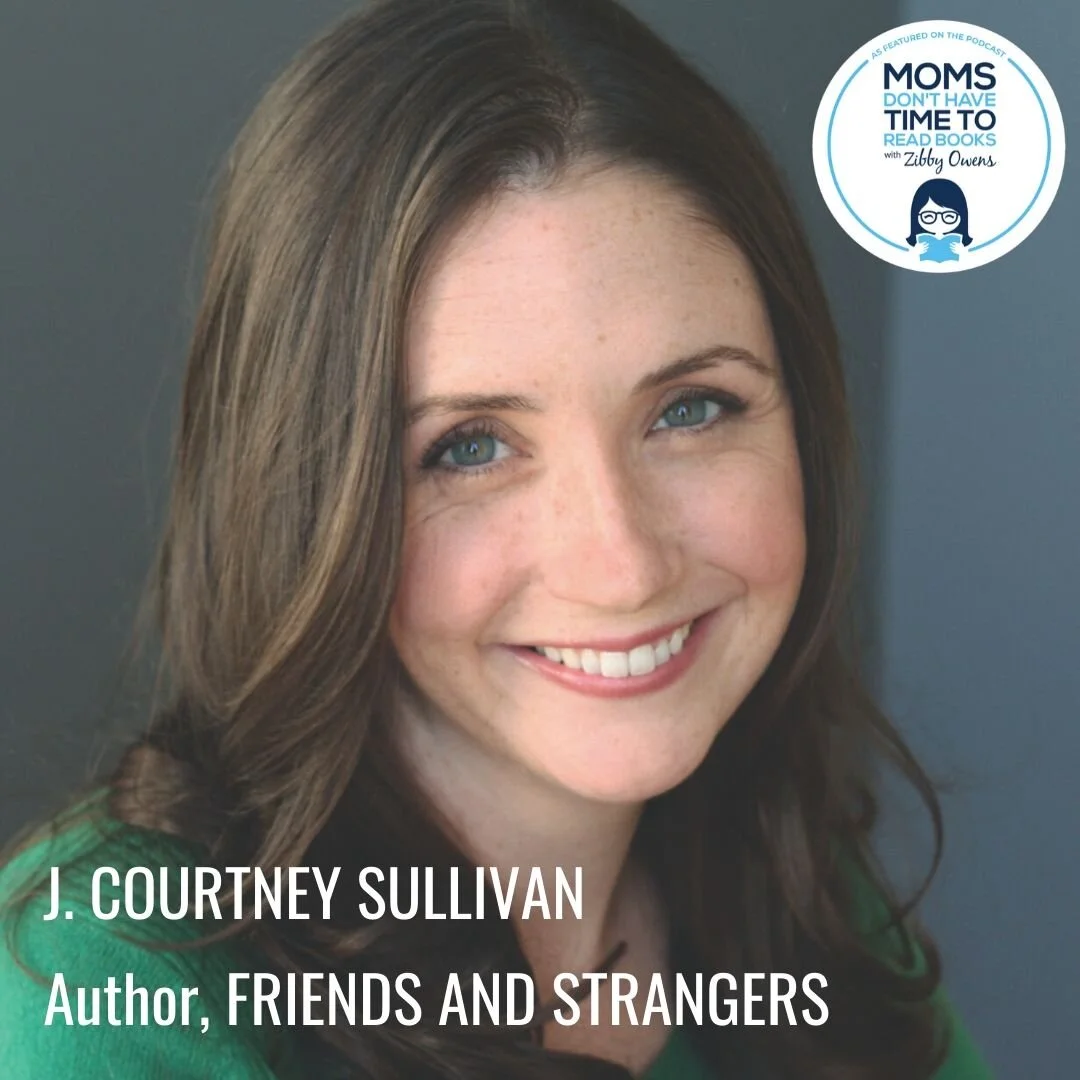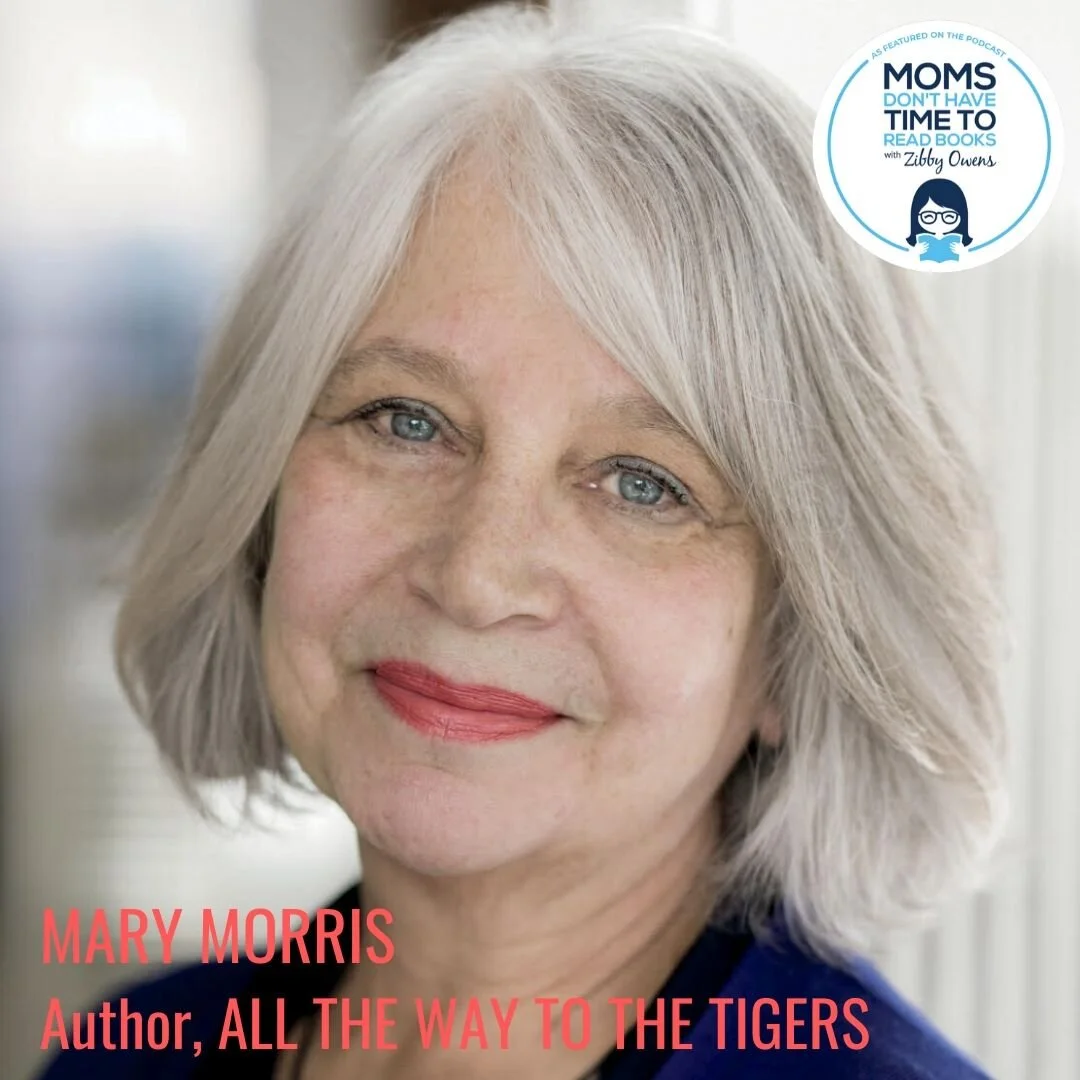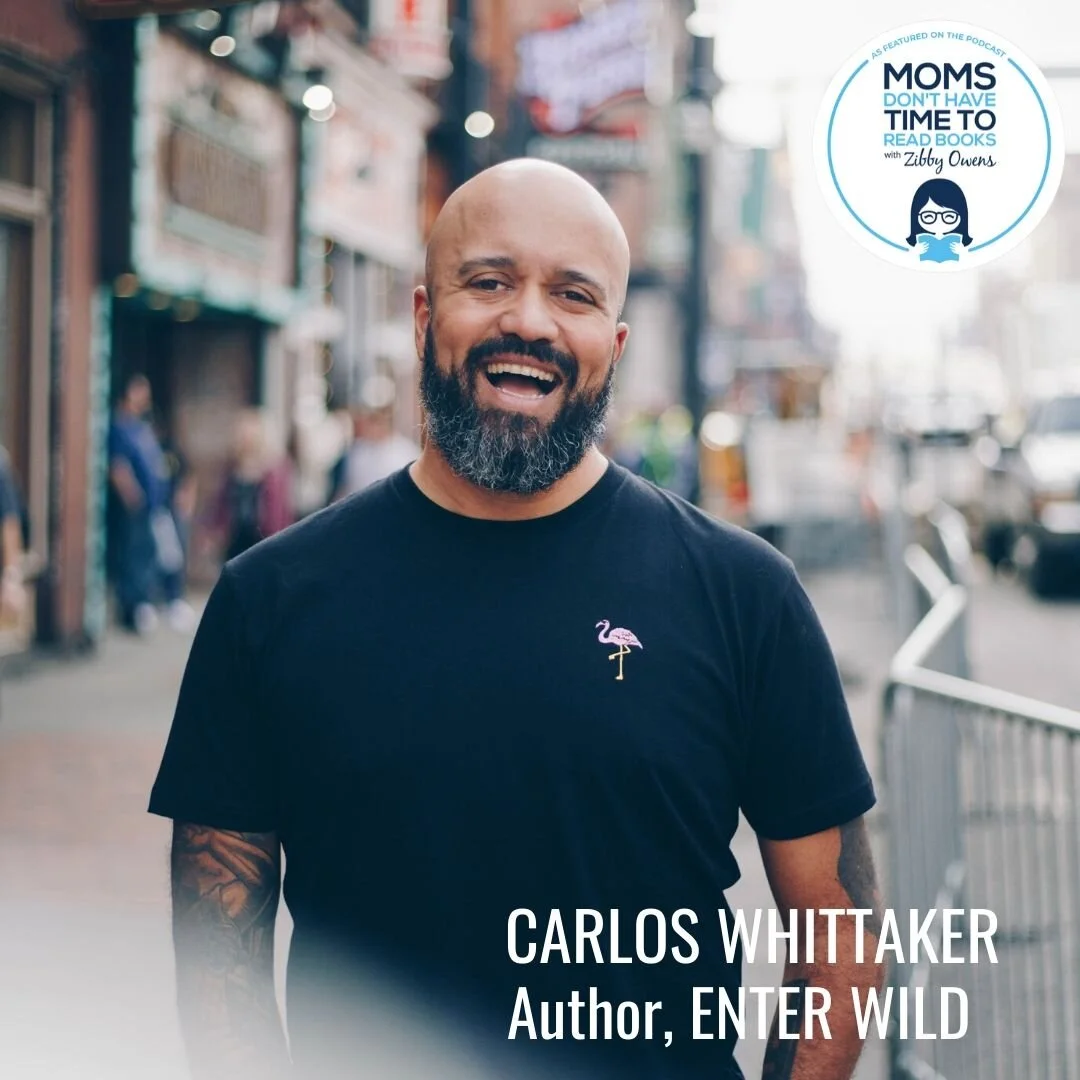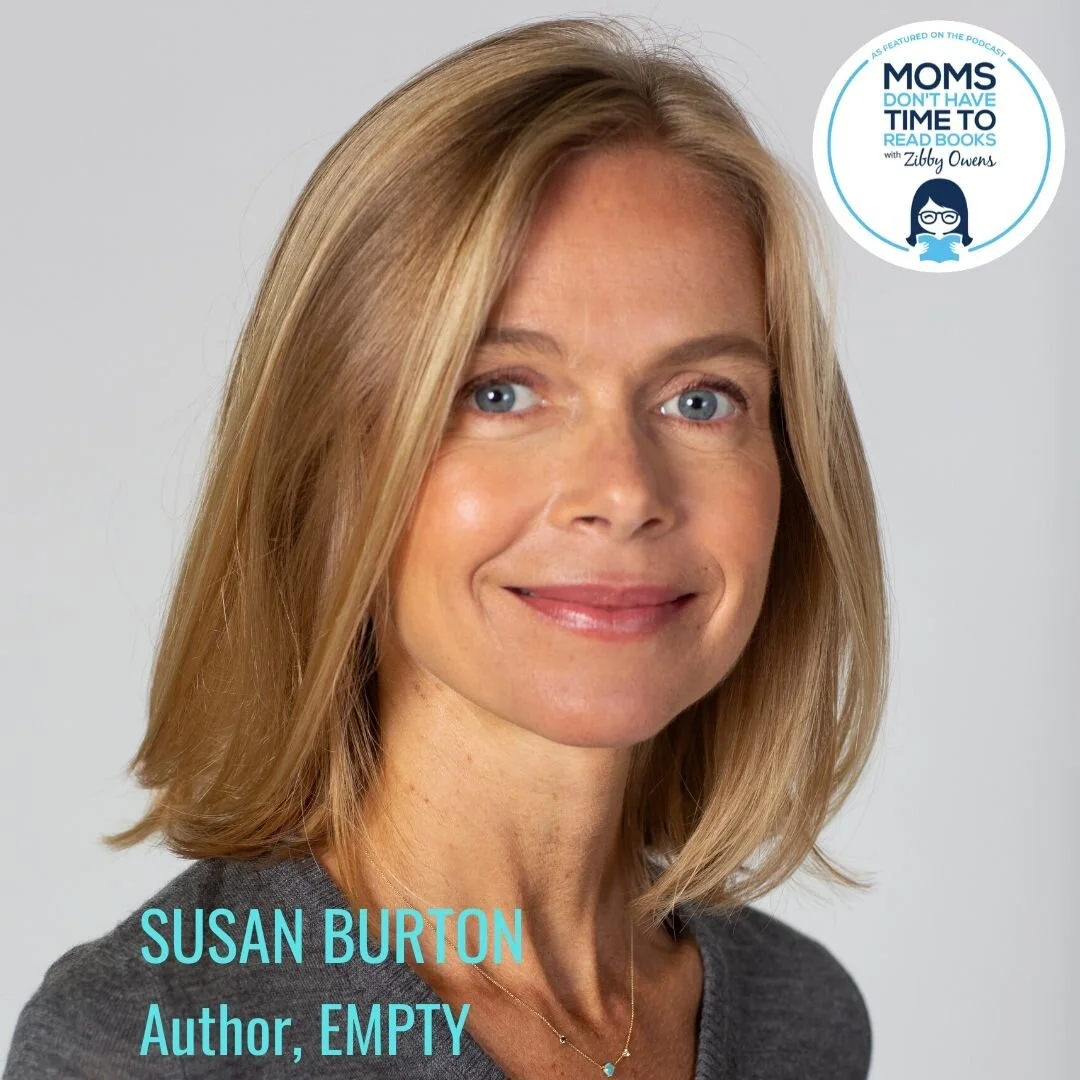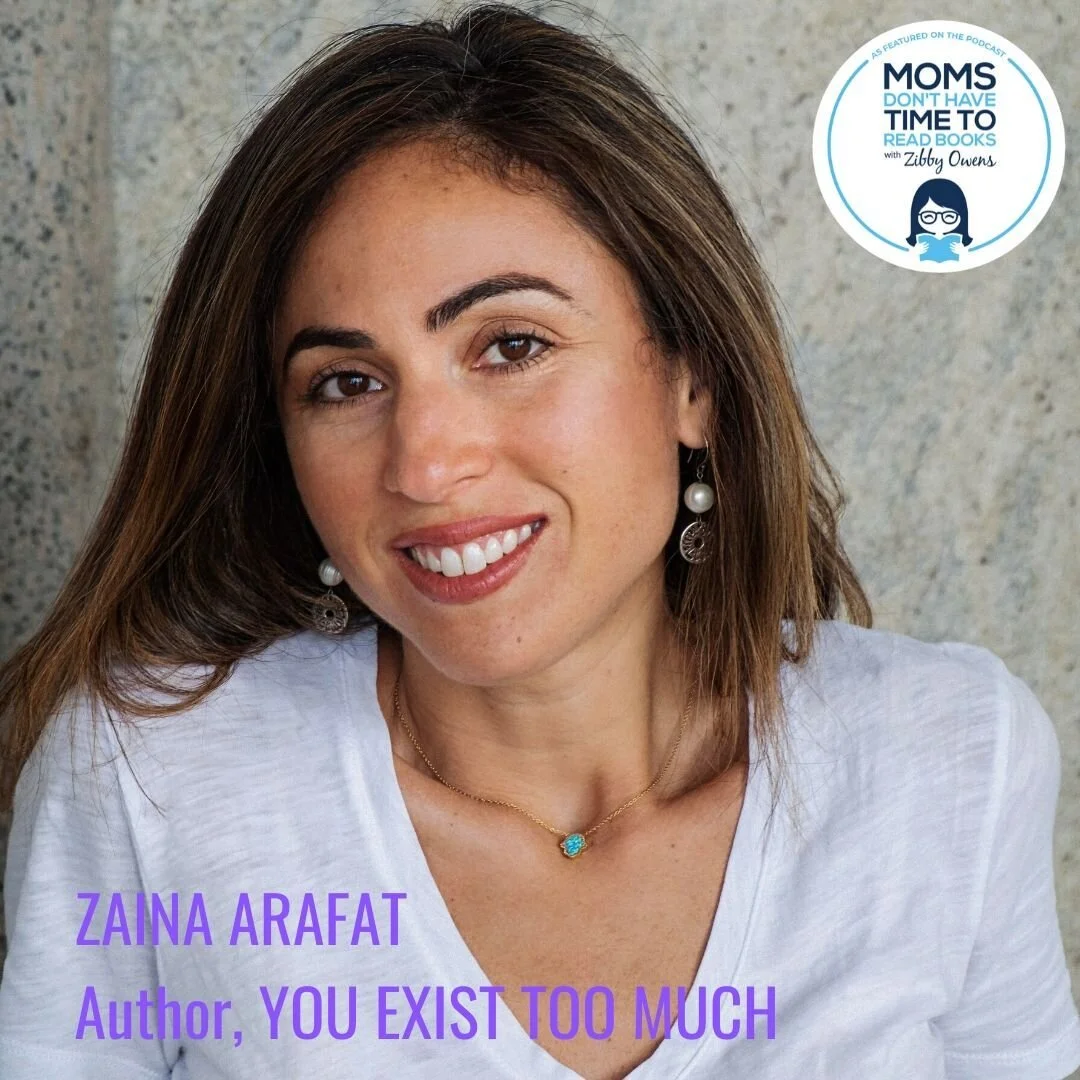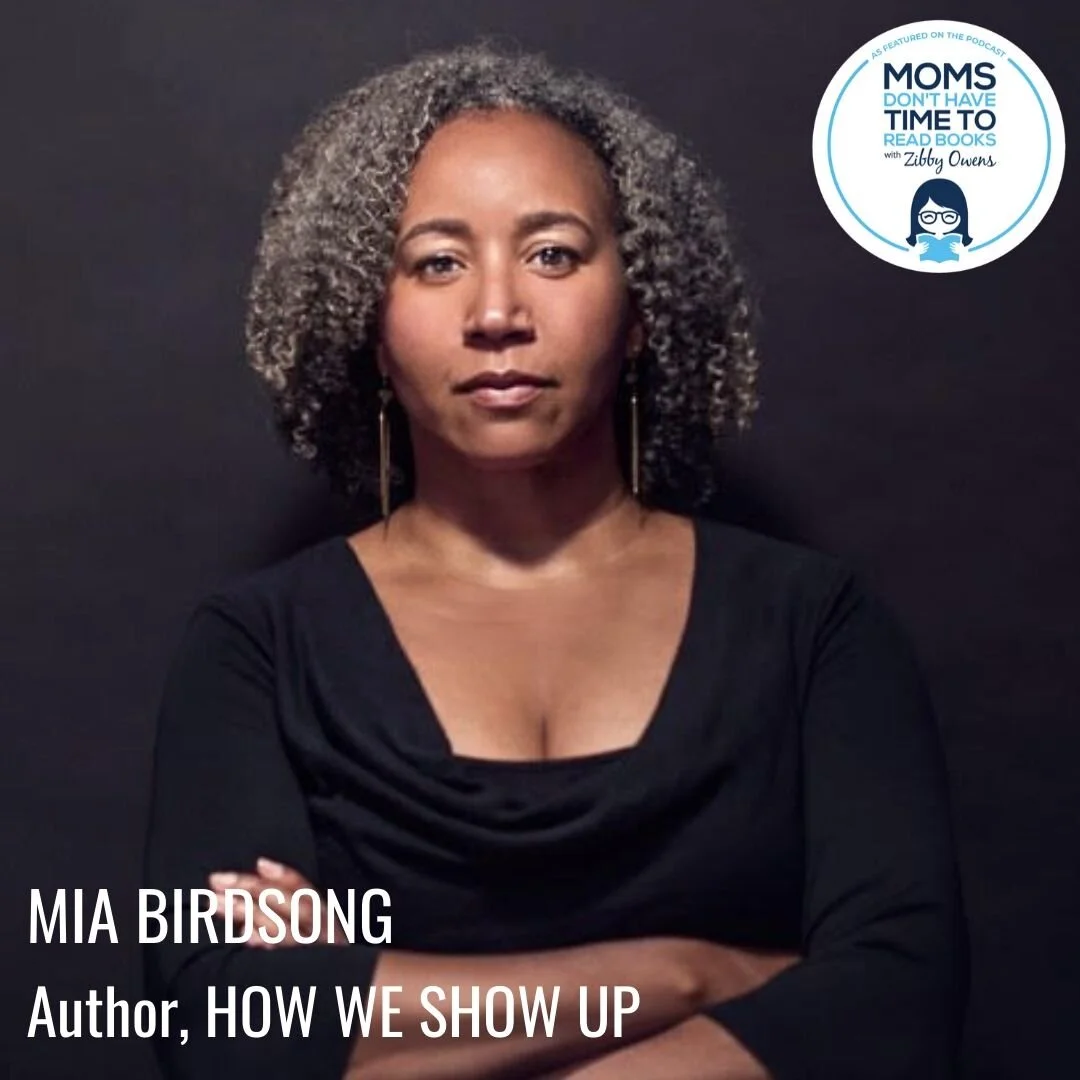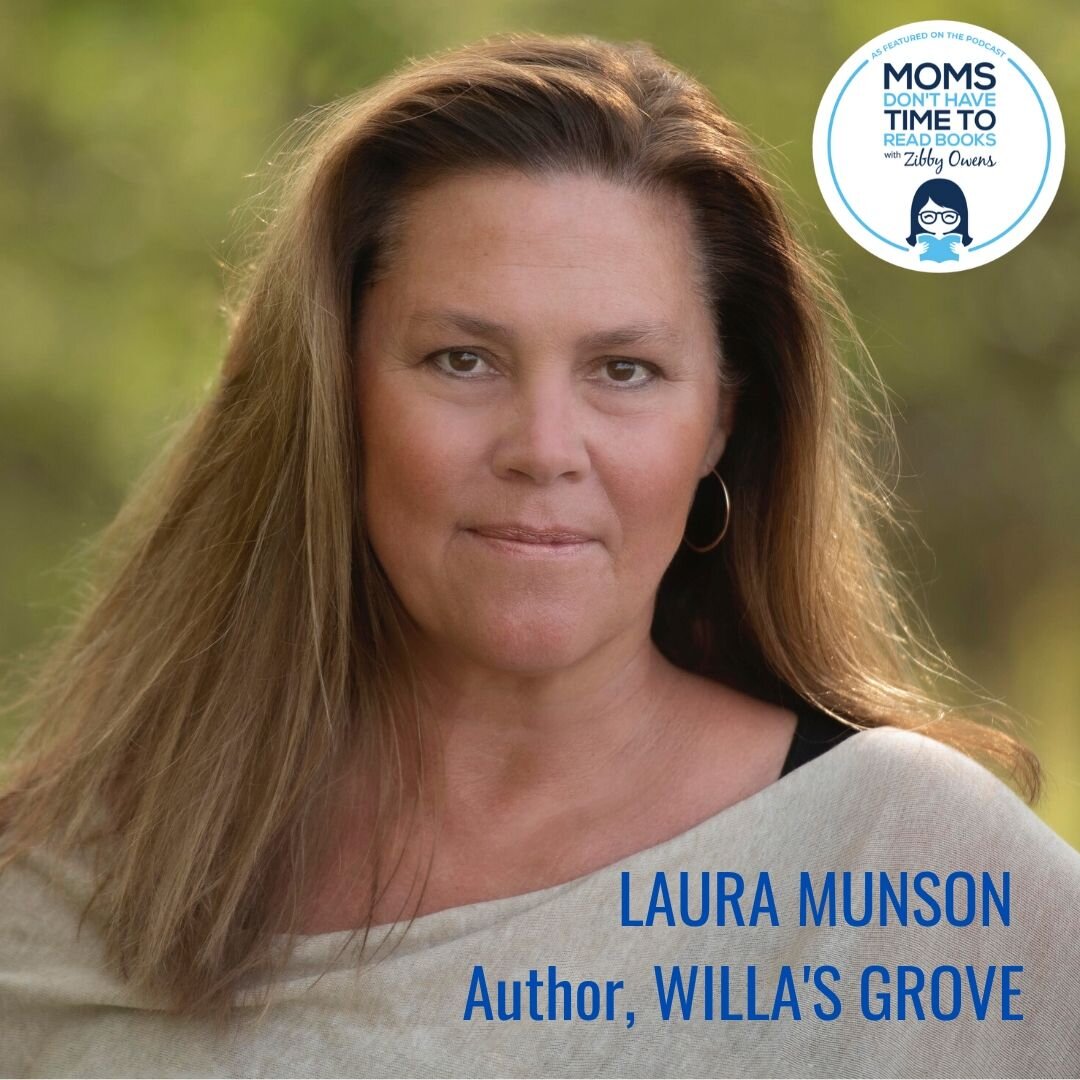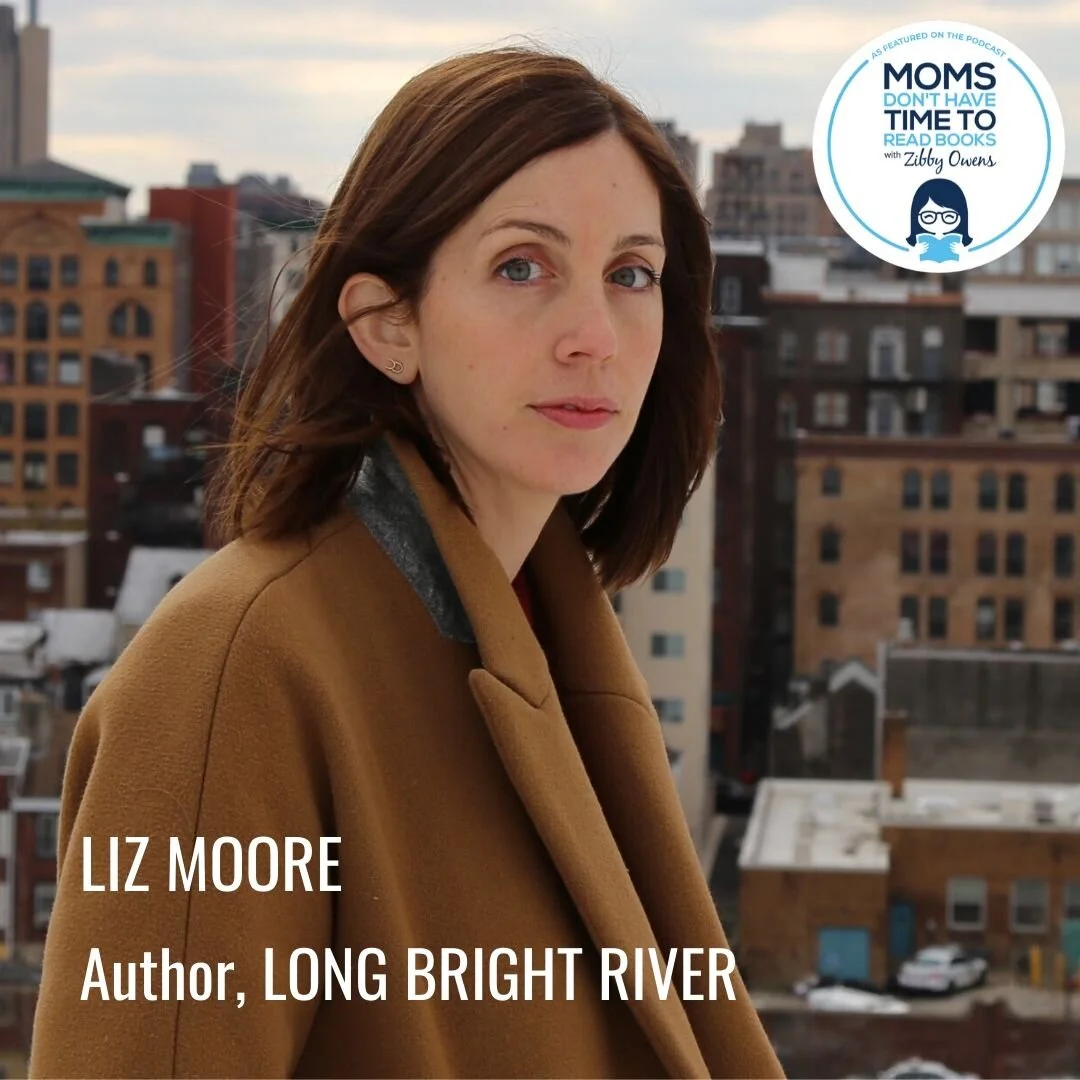Catherine: I wrote this book because I have the kind of kid -- my daughter Birdy who's seventeen now, for her whole life, she has really liked to do it her own self. She started saying that when she was one and a half and has said it basically ever since. She, at some point, was twelve or thirteen and I had asked her to do some basic task like sweep the kitchen. I think it was a holiday. She didn't know how to do it. She had never picked up a broom. That was my fault. It had never occurred to me to ask her. She didn't know how to do it and didn't want to be shown how to do it. Then you're in your own personal vacuum of you can't learn something if you don't let someone show you, so you need a book. I went to the library to get a book that I pictured as a photographic encyclopedia of housework. This is a book I thought would exist and would be a really great book for kids that would be a thousand pages long and every page would be an eight-step photograph of how to sweep the floor, how to clean the bathroom. That book did not exist, you'll be surprised to hear. Then I thought, there must be books that show kids how to do useful stuff. Weirdly, there's lots of books about fun useful stuff like all the Girl Scout-type books, but there really wasn't a book that was about teaching kids to do basic household chores. That's the book I set out to write. Then it kind of evolved because my wise publisher thought that still wasn't going to be a really fun book if it was just about chores. That's how it got to be so variable.
Kevin Kwan, SEX AND VANITY
Kevin: I think there's a fascination and a revulsion. I get comments on my Instagram. I see some people, they're like, "We love the story, but we wished the people weren’t so wealthy." I'm like, do you really? Would you actually be interested in reading about them if they were just crazy middle-class Asians? [laughter] That's a whole other book. That's very valid, absolutely. Since the beginning of time, people have been fascinated by power and the people who are at the top of the pyramid beginning with stories of the pharaoh that was passed down through gossip, to stories in the bible about the rich and powerful, to Machiavelli, to Shakespeare. Even during the Spanish flu, people were reading Edith Wharton's book and Henry James's books and escaping into these worlds. What also is important is that I think for people who are not in that one percent, it's kind of gratifying to see that these rich people have problems too. There is a universality to the experience. It brings them down, to bring down these characters to have to reckon with the fates and to have to experience the tragedies and the dramas of their lives. I think people are always riveted by that. Certainly in my books, I go to great lengths -- I'm not glorifying the wealth. I'm just portraying it as I see it. I'm also revealing that in these worlds there are decent people who understand and who realize that they're extremely privileged in a world that's completely full of inequality and who are trying to make a difference.
J. Courtney Sullivan, FRIENDS AND STRANGERS
Courtney: Friends and Strangers, primarily, it's about the relationship between a new mom who's just had her first baby and just left New York City and moved Upstate. She's sort of ambivalent about the move. She doesn't have any friends where she's living, feels kind of isolated. She ends up hiring a college senior to babysit her child. The two of them develop a friendship. It's kind of a complicated friendship, of course, because one of them is the other's employer. Their lives become very enmeshed in a lot of different ways. In a larger sense, the book is very much about motherhood and women at different stage of transition in life. There are years of our lives where we don't have huge, life-altering transitional moments. Then there are years of our lives when we have our first baby or we're graduating college and starting out in the world. Each of these women is really at a crossroads. Probably, the friendship they develop and the intensity of it would never have occurred at any other point in their lives, but it does. It also kind of takes a look at what does it mean to have a safety net? What does it mean in this particular climate in which we live with the gig economy, with massive classes divides in this country, what does it mean to be supported in a lot of different ways?
Kerry Kletter, EAST COAST GIRLS
Kerry: East Coast Girls is about four girls who grew up together. They have this almost familial bond because they came from families that weren’t particularly loving or functioning very well. They found each other and became a pack and kind of raised each other. Then they get to high school and this terrible thing happens to them one night, just a totally tragic thing. They never talk about it. For the next twelve years, they never talk about what happened. Their lives are all derailed in different ways because of this thing that happened to them. Their bond is a little bit fractured because of it. They decide to go back to the last place that they were truly happy, which is these summers they spent together in Montauk when they were girls, and see if they can sort of get back to their own innocence and their connection to each other. Of course, things don't always go as planned. Therein lies the story. The secrets start coming out and things happen.
Bonnie Tsui, WHY WE SWIM
Bonnie: This book is a cultural and scientific exploration of our human relationship with water and swimming. We've been talking a lot about survival and community and competition and flow and all these reasons why we do it, and well-being. Before all of this, I would've said survival definitely is the most vital reason for swimming. Now I keep thinking about survival in all these different ways in these times. You and I were chatting about this before, just that we are in this moment of great uncertainty. We need time to recalibrate and be with our thoughts to understand what it is that we're thinking. Right now, getting in the water is one of the best mental health things that we can do. It's so restorative. I know that a lot of people these days aren't able to get into pools because most public pools are closed. I've been getting into San Francisco Bay and doing open-water swimming. I was just thinking about how the other day I ran into a doctor friend of mine. She had never been an open-water swimmer. Of course, I'm watching all these people adapt and putting on wetsuits and figuring out inflatable buoys and things to get out there and feel safe. We were walking up from the beach and she said, "I just feel so much better now. This has been a week." Just the moment of stepping into the water and seeing the expansiveness and experiencing the connection to the water and the world, I think that is so important. We're wired to respond to that. Again, the science just resoundingly supports how we find so much benefit in immersion.
Glennon Doyle, UNTAMED
Glennon: Lord have mercy. I fell in love with Abby while I was on a book tour promoting Love Warrior, which was very tricky timing because Love Warrior was being touted all over the place as this epic marriage redemption story. It's interesting. A woman's life, people like for things to be clear cut and black and white. That wasn't my experience. I guess in a way you could say that my marriage was redeemed because we had worked really hard to forgive each other. We were making it work in the way that families who keep showing up for each other do. The problem was that I was just pissed off all the time. [laughs] I was trying to make it work. I was waiting for forgiveness to just fall from the sky and stay. I had this low-level river of rage that just never went away. We were dealing with a lot of things. We were dealing with infidelity. That is what a lot of Love Warrior was about. Some of my rage was about the infidelity. I don't even like leading with that anymore. I feel like I've annoyed myself recently because I find myself leading with that. Yeah, so my husband my cheated on me. I think it's a way of, as a woman, framing things that it's okay for me to do what I wanted because I had this get-out-of-jail-free card. You can honor my decision. You can say it's okay. You can say it's okay for her because she deserved to leave, but I don't want women to think that. I don't want to women to think you have to have a get-out-jail-free card to honor yourself.
Mary Morris, ALL THE WAY TO THE TIGERS
Mary: When we were in the actual tiger reserve, I understood that they didn't want me to take a walk. Actually, I look back fondly at the moment where I said, "Can I take a walk?" because it was a moment in the reserve where there were creatures everywhere, water buffalo and all kinds of birds. There was this wild boar. It was a beautiful, bucolic setting. Obviously if all these animals are out, there wasn't a tiger nearby. I knew that. I learned that on my trip. I thought maybe they'd let me take a walk. Of course, they wouldn't. The real frustration was when I wanted to visit some of the villages. We weren’t in the tiger reserve anymore. I was like, I just want to walk. That was frustrating to me. I felt cooped up. I'm not a good person to coop up. I don't like to be confined. I always have to have an aisle seat. I didn't like the feeling that I couldn't get out and walk. I haven't been on safari in Africa, but people tell me that it's one of the constraints that people feel in Africa. They really don't let you get out and walk.
Carlos Whittaker, ENTER WILD
Carlos: All this to say, long story short, fourteen days after I sent this email and I'm freaking out, nobody's booking me to be a speaker. Nobody wants me to write a book. I'm sending book proposals. They're getting shut down left and right. I get one email in my booking email. It was from the White House. I thought it was spam, and so I hit delete. Then my publicist called me twenty minutes after I deleted the email. She's like, "They know you deleted the email." I was like, "Who are you talking about?" She said, "The White House. Go look at your email." I opened my deleted folder. It said, "The White House would like to invite you to be the keynote speaker at President Obama's Easter Prayer Breakfast next Tuesday." My very first speaking gig ever was at the White House for the president of the United States. I've never been more nervous in my entire life to give a ten-minute talk. It's been downhill since then. I just don't get nervous anymore. That was the beginning of my speaking career. That was 2015. I love it. I love to be a hope dealer. I do a lot of corporate events. I do a lot of motivational events. I do a lot of church events. I feel like people, especially right now in this season, are just desperate for hope. I do that through my Instagram. I do that through my books. I do that through when I'm speaking on stages. Whatever it may be, I'm just trying to constantly be hope for people.
Susan Burton, EMPTY
Susan: Empty tell the story of the eating disorders, both anorexia and binge eating disorder, that defined my adolescence and really my adulthood too, though I wasn't able to admit that until I was in my forties. What happened was, almost a decade ago I signed a contract to write a book that was meant to intertwine the story of my adolescence with a cultural history of teenage girlhood. I'd always been really drawn to mythology of the teenage years ever since I was a Seventeen magazine-obsessed middle schooler in 1980s Michigan. I started writing that book, marching along through the cultural history. Midway through the first draft, my eating disorders just took over the narrative. I was paralyzed. I'd never told anybody about the binge eating. It was a secret I'd been keeping since my adolescence. I'd kept it even from my husband. We met when we were seventeen. I didn't know what to do. For years, literally for years, I kept trying to write the book I'd committed to, the cultural history. I was too scared to write about eating disorders for a bunch of reasons, but in large part because to do honestly would force me to admit that they'd never really gone away, that my obsession with food still defined my life. I was no longer bingeing, but my life was definitely still organized around food. The thing was, I really wanted to write about them. It felt urgent and unresolved. There was part of me that knew it was the story that I needed to tell. Eventually, with the encouragement of my editor who's really wonderful, I was able to just embrace that desire and stop denying what I wanted and write the book I wanted to write, which in a way is like a metaphor for eating disorder recovery itself.
Julie Clark, THE LAST FLIGHT
Julie: In 2015, I was diagnosed with breast cancer. It was caught early, thankfully. It was something that I'd always been afraid of. My best friend had died in 2012 of breast cancer. I was always like, oh, my god, what if it happens to me? I'm a single mom. I have two boys. It was always something I was so scared of, and then it happened. It's like, oh, my god, now what? You really do get right with the universe or god or whatever you believe in. You make yourself right with that very quickly. You learn that there are things you cannot control and that you can sit on the ground and scream and cry and say, why me? This isn't fair. But why not me? Why should things be fair? It was really a powerful time in my life. I learned a lot about what it means to be afraid and still move forward. It was transformational for me personally. I'm very privileged in that I have a good job. I have good health insurance. I was able to take time off work and go on disability. It was such a privilege to be able to step out of my life in that way and just focus on myself and my kids and keeping everything as normal for them as I possibly could. I know not everybody has that privilege. I was very appreciative of being able to do that. I really focused on my mental health and my physical health and just slowed everything down. Literally, if you imagine life as rapids where everything's happening so quickly and you can't miss this and you can't miss that, you're just stepping out of the water and sitting down on the shore and just watching it all go by. There's a definite power to being able to do that. I'm not always successful at that.
Marian Keyes, GROWN UPS
Marian: The thing about Grown Ups is it starts at the end in that all the characters in the book -- they're this glamorous family of three brothers and their wives, their ex-wives, and their adult stepchildren. They're at a dinner party. They spend a lot of time together. They get on very well on the surface. Underneath, things are far more complicated, as they always are with any group of people. Three people have their secrets outed because one of the wives gets a concussion. When I started the book, I knew that I needed secrets. Money is always a good one. Infidelity is always another one. Then I was thinking about, what would I hate to be in a situation? I thought addiction because I'm in recovery for alcoholism and I really understand the secrecy. I don't have an eating disorder. It's really important to say that. I understand the burden of it. The idea of this woman suffering from bulimia came to me. I feel like as eating disorders go, bulimia's a particular brutal one because you hide in plain sight. With other eating disorders at either end of the spectrum, it's evident. Your body is your evidence that you're ill. With bulimia, people kind of trudge on for years and years with this monkey on their back, with their voice in the head, and nobody really knows. I thought it needed to be written about. Luckily, people who have bulimia or who are recovering have read it and they said that I did it accurately, which is really important always. When I write about somebody else's journey or their pain, it's so important to honor it and do it properly.
Kara Kinney Cartwright, JUST DON'T BE AN A*SSHOLE
Kara: My sons are now nineteen and twenty-two. Our nineteen-year-old is home from college with us for the summer. My twenty-two-year-old lives on his own and, knock, knock, employed and all that good stuff. I can't tell you how many ridiculous, ridiculous texts that I send to them. Wash your hands. Save the grannies. Every time I see something on the news, you just get that mom feeling in your heart, like, did I tell them? Do they know? Are they going to do the right thing if they're not in front of me? When my son walks out the door with his -- I know he's going to ride his bike. I yell, "I love your brain." That's how I say wear your helmet. He's nineteen. I can't say wear your helmet, but I'm allowed to say I love your brain. It helps because you just get a second sometimes of their attention. In my family, teasing and sarcasm and humor, that's our love language. It's not for everyone. If your children are suffering from anxiety, you maybe don't want to say to them, straighten up or you're going to live in the basement forever. That might not be the way to go. You have to know your own kid.
Angela DiTerlizzi, THE MAGICAL YET
Angela: The Magical Yet is a special companion that is with you when you're down and your dreams haven't come true or you're upset by the things you can't do. If you've lost or failed or cried just a bit, you're fed up with waiting and ready to quit, your magical yet is with you. Your magical yet is kind of like your coach, your teacher, your cheerleader, and supporting you along the way when you're trying new things and having new adventures. he seed for The Magical Yet began when my daughter, who is now almost thirteen, was about nine years old. She was playing basketball on a team for the very first time. Her team had lost every single game of the season, which is just so painful as a parent to see. It was the very last game, and she got the ball. It was this slow-motion moment in which the ball soared from her fingertips through the air and into the basket. Just as I cheered, I realized in that moment she had just scored for the other team. The pep talk started immediately after getting in the car leaving the game. The words of Dr. Carol Dweck, who is a psychologist and professor from Stanford who talks about the power of yet, kind of came to me. I thought, this is the thing. You're not there yet. You have not mastered basketball yet, but you will get better if you keep trying.
Zaina Arafat, YOU EXIST TOO MUCH
Zaina: I think fiction was a perfect vehicle for this kind of story for a number of reasons. One, I wanted to be subversive when it came to creating characters that were Arab, and specifically Palestinian and Muslim, and to challenge stereotypical depictions of Arabs and Muslims. Similarly, I wanted to challenge stereotypical depictions of queer people as well and to really just three-dimensionalize, which I felt I had more room to do in fiction. Getting the story on the -- it was very hard to write the story and to communicate the precise nature of her struggle because of the fact that so much of it was coming from within. In many ways, she was up against herself more than anyone else. Trying to really capture the psychological dynamics, I just remember the moments of epiphany when I would realize, ah, yes, this is exactly where her shame lies. This is exactly why her shame exists as it does. This is exactly why she's destroying this potential for a healthy relationship. Understanding that was, at once, revelatory and really a breakthrough and also really hard to depict in writing or hard to depict in a way that was artful. It was in part exhilarating and difficult.
Samantha Harvey, THE SHAPELESS UNEASE
Samantha: If you remember a dream and you look at it, you see it's just all of your desires and fears all dressed up in different costumes. It's just the same as writing. I find that really fascinating. I think that maybe one reason that writing has been such a salvation to me through insomnia is because when you're not sleeping, you're not dreaming, so all of the working out that you do through dreams isn't happening. I think I did that working out through writing. It was sort of a surrogate way of dreaming. I hadn’t really realized at the time. It only occurred to me a few months ago. I thought, I can see why that was such a necessary thing for me to do because I didn't have any other way of processing my subconscious. It was an incredibly powerful realization. This book, if nothing else, has absolutely restored my faith in writing, which was flagging a little bit. There must have been thoughts of, what's the point of writing novels? The world is going to hell. What's the point? I now think that sort of answered that question for me.
Mia Birdsong, HOW WE SHOW UP
Mia: It became very obvious to me. I was like, of course, the answers are always in the places where people are excluded from practicing the American dream. I feel like continually whenever I'm looking for answers for issues we face or how to be a person in the world, it is in the places where people have not been successful at what America defines success as because that definition of success is so toxic and is fundamentally racist and sexist and classist. The communities where I have seen the most powerful and inclusive and beautiful and caring examples of family and friendship and community are in my own black community, among queer people, among unpartnered parents, among unhoused people. Those were the people who I went to as the experts for this book. They did not disappoint. I feel like I was transformed by talking with them. Because so many of these people were in some way connected to me, a lot of the folks in the book are my friends, our relationships were transformed just by having those conversations.
Laura Munson, WILLA'S GROVE
Laura: This is a book about four women who are each in a major crossroads moment of their lives. As a result, they're isolating and hiding and pretending like so many of us do when we're in those crossroads moments because we're afraid of being judged or we feel guilty or ashamed. Finally, one of the women, Willa, the protagonist, reaches out to an old friend and she spills it. Her friend comes up with this idea that perhaps they should have a week away from their lives and they should invite people who are also at major crossroads moments all looking at the question that we're all looking at right now, which is, so now what? These four women get together. The recipe that they follow is one that I hope others will too. Willa invites her friend Bliss. Bliss invites her friend Harriet. Harriet invites her friend Jane. Each of them has at least one good friend. They convene in Montana for a week. They help each other find their answers to, so now what? They do so by having those conversations that we all need to be having and so often aren't. That's the question. Four women. One week. One question. The question is, so now what?
Liz Moore, LONG BRIGHT RIVER
Liz: I think it's a huge mix of genetic predisposition in some cases -- one of the central themes of the book is the idea of nature versus nurture and how it can be that two siblings in the same family come out so different as adults. I think the answer to that is that there's -- certainly, some people have a genetic predisposition to it. Also, even within the same family, two people can have very different experiences of nurture, whether we're talking about birth order or whether we're talking about the circumstances of one's family when one was growing up. I think you see this a lot in families where there's a large age gap between siblings especially. The parents themselves can have, for example, completely different economic circumstances between when one child was born and the other child was born. I think all of those things contribute to why one person might suffer from addiction and one might not. I do believe that there have been huge systemic failures that have contributed to this particular wave of opioid addiction in the United States. I'm glad to see some legislation is starting to be imposed that protects the individual from the profiteering of pharmaceutical companies, but in a lot ways, the damage has already been done. This very insidious addiction has already made its way into family units. We will feel the effects of that for generations, I think.
Danny Feekes and Suzanne Skyvara, GOODREADS TEAM
Danny: Goodreads, we're seeing a ton of really interesting trends right now. Obviously, we're in an unprecedented time, so we're seeing our audience really gravitate to a few things. One thing that we're seeing is a lot of rereading. People are gravitating towards the classics, Jane Austen, things like that that are maybe more comfort food for them, slipping in something familiar. We're also seeing people really gravitate towards books that provide some sort of escape. Whether that's a beach read if they can't actually make it to the beach or something more in the horror genre that provides a fright that’s not their own right now, we're seeing a lot of that. Another interesting trend that we've been seeing for the past few years is diversity in the romance and young adult categories. We're seeing a lot of diverse authors here, a lot of diverse characters here. This summer, the romance genre is really interesting with heroines of a lot of different shapes and colors. We just always love to champion those books.
Natalie Jenner, THE JANE AUSTEN SOCIETY
Natalie: I know. We always say we would give our left finger, pinkie, arm, to not have gone through what we went through even for the perspective because it is awful. When you're given that horrible diagnosis, it's awful. There's no way to sugarcoat it. The perspective is the one silver lining. Also, in a very odd way -- I'll get a little emotional talking about this. When my husband was diagnosed and I was reading Jane Austen, something happened to me with my reading of her for the first time in my life. I had read her since I was a little girl many times. I had gone to the village many times. I had read about her, lots of books. This time, she was reaching me on a different level. It was almost as if she’d been waiting for my maturity to catch up to her, to where she was, because I think she had a hard life. I think she was somebody who was one of the handful of geniuses in literature up there with Shakespeare.


